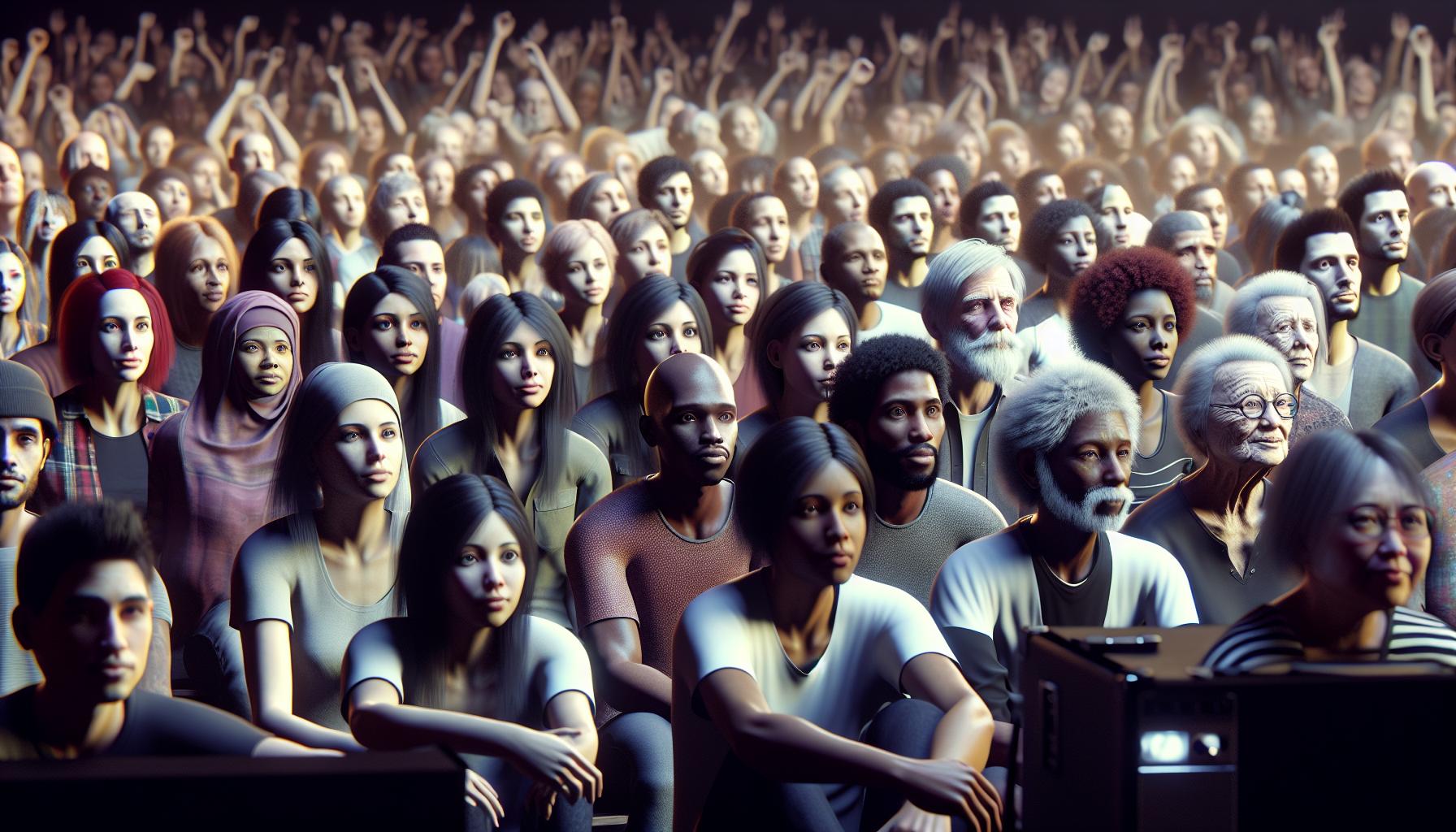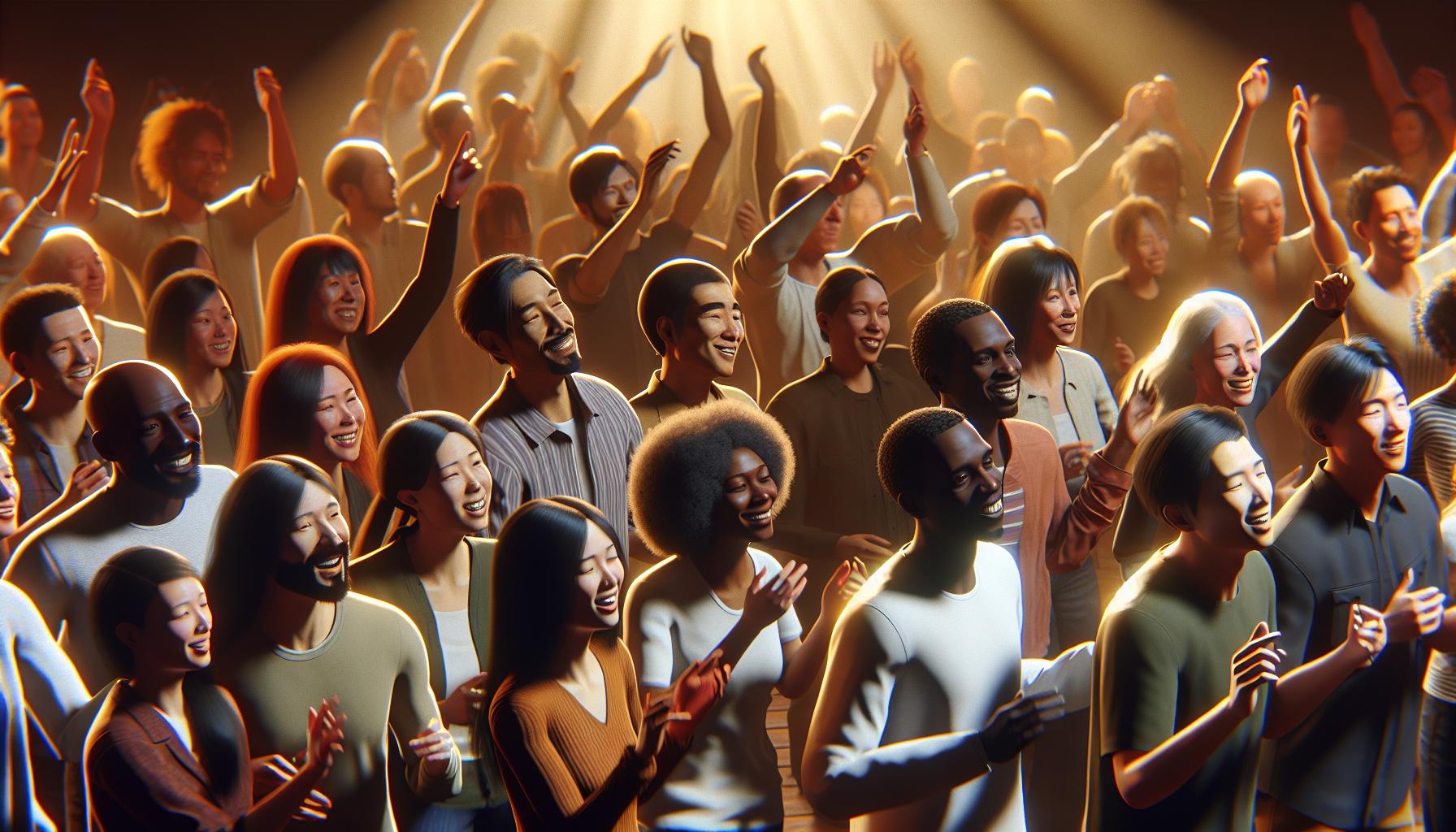I’ve always believed in the transformative power of music. It’s not just a collection of notes and rhythms, but a universal language that speaks to our souls. Music has the unique ability to guide us through the journey of self-discovery, helping us grow personally and emotionally.
In my own life, music has been a constant companion in times of joy, sorrow, confusion, and enlightenment. It’s a powerful tool for self-expression and self-understanding. Whether you’re a musician, a casual listener, or a hardcore fan, music can serve as a mirror, reflecting our innermost thoughts and feelings.
So, let’s dive into the world of music and self-discovery. Let’s explore how music can facilitate personal growth, how it can help us understand ourselves better, and how it can ultimately lead us to a more fulfilling and authentic life.
Contents
The Power of Music in Personal Growth
Throughout my journey of understanding and self-growth, I’ve found music to be an exceptional tool. Every beat and rhythm has the capacity to express emotions that words often fall short of describing. Music is not confined by physical boundaries or linguistic barriers. It’s a universal language that speaks directly to the soul.
Melodies and rhythms can provide comfort, inspire morale, and evoke powerful emotions. They’ve guided many of us through life’s ups and downs. Music holds a unique power to make us cry, laugh, dance or reflect. It can be a source of strength during trying times and a catalyst for joy in the moments of celebration.
Music is also a tool for reflection and self-discovery. Through songs, we often discover and understand our emotions. Music acts as a mirror reflecting our innermost thoughts and feelings. As an audience, we relate to the lyrics and melodies, discovering facets of ourselves we may not have acknowledged before.
In the pursuit of personal growth, music serves as a guide leading us to introspection. It invites us to delve into our subconscious, letting us embrace our emotions to better understand ourselves. Music helps us grow emotionally–promoting empathy, understanding, and emotional resilience.
The use of music in therapeutic practices supports this belief. Music therapy is a growing field that harnesses the power of music to promote healing, emotional growth, and improved mental health. The impacts are easy to notice:
| Impact | Details |
|---|---|
| Healing | Use of songs and melodic expression aids in the recovery process within therapeutic settings |
| Emotional Growth | Music helps individuals understand their emotions, promoting emotional resilience |
| Improved Mental Health | Studies have shown music can help alleviate symptoms of mental health disorders, like depression and anxiety |
Embracing music in our lives can pave the way for an enriching journey of personal growth. It’s important to note that this relationship between music and personal growth is not a one-size-fits-all formula. How it manifests in our lives depends on our individual experiences, preferences and interpretations. Music, like life, is subject to interpretation and it’s this personal and subjective quality that makes it an empowering tool for personal growth.
Music as a Universal Language

Has it ever struck you that music has the power to cross all boundaries? Even if you don’t know the language of a particular song, you still feel connected to it in a profound way. Music is a universal language. It not only conveys emotions that are often hard to express through words but also taps into the deepest corners of our hearts and souls.
I remember visiting a local music festival where a non-English speaking band was performing. It was fascinating to watch the audience get completely absorbed in the performance. Even though the words were foreign, everyone seemed to understand the emotion in the music. That’s what I call the transformative power of music—its ability to transcend all barriers of language; its capacity to connect people universally.
But then again, music does more than just connect us universally. It serves as a powerful means of self-expression, allowing us to articulate our thoughts and feelings more effectively. In a sense, it gives voice to our unspoken emotions. Who hasn’t lost themselves in the rhythm of a song, only to find they’ve discovered something new about themselves?
Moreover, music doesn’t discriminate. It doesn’t matter where you’re from or what your background is – it is an experience shared by all. When we listen to music, we’re not just hearing the notes and beats. We’re absorbing the emotion, we’re feeling the story, and most importantly, we’re connecting with the essence of humanity itself.
Music also evokes a sense of nostalgia that can transport us back to specific moments in our lives. Whether it’s a lullaby from childhood or a song from your high school days, music can catapult us back in time, reviving vivid memories and powerful emotions.
Whether it’s a love song that speaks to your heart or a melancholic tune that touches your soul, music transcends linguistic barriers and connects us on a much deeper level. You could be anywhere in the world, and a melody can still make you feel at home. And, arguably, that’s the true beauty and power of music. As I delve deeper in this exploration, I’m eager to share more about the therapeutic use and emotional growth powered by music in upcoming sections.
Music as a Tool for Self-Expression
The power of music stretches far beyond its ability to entertain or soothe. It’s an often voiceless medium of expression. Music, in its essence, enables us to articulate our deepest feelings without having to find the perfect words. It creates a platform where emotions find their voice, and where I, like many others, unearth the hidden layers of my psyche.
My exploration into the realm of self-expression through music started with its incredible ability to communicate. Even when words falter, music picks up the slack, resonating with our emotional state and giving us a means to say without speaking. There’s a certain depth to music, an intricacy that offers endless paths to personal understanding and growth.
Music plays different roles in our lives. For some, it’s a companion in solitude, a tonic for heartaches or a melody on a joyous day. For others, it’s a form of escape, a journey into an alternate reality. As for me, music became a mirror, reflecting my inner world. Each note, each rhythm began to correspond with feelings I didn’t even know I harbored.
Using music as a self-expressive tool also involves creating personalized playlists. These serve as a musical diary, a chronological record of my emotional ebb and flow. Whether it’s joyful pop-filled days or brooding blues-tinged nights, my playlists capture it all, providing insights into my evolving self.
Let’s not forget the role music plays in challenging and changing our perspectives. Lyrics often provoke thoughts, inspire ideas, and ignite change. Every song is a story, offering its interpretations and pushing the boundaries of our thinking.
Music isn’t simply a tool for self-expression. It’s a conduit for self-discovery and personal growth. It provides a gateway to our souls, allowing us to understand ourselves better, and paving the way for us to transcend the confinements of mundane existence. And in doing so, music continues to be the universal language striking chords within our hearts.
Using Music for Self-Understanding
It’s quite striking how a chord progression or a melody can stir feelings deep within us – emotions that we may have found difficult to recognize or express through words. Using music for self-understanding is a powerful practice. I’d venture to say it has been essential for my journey of self-retrospection and transformation.
When we sink into a song and allow its waves to crash over us, it may evoke emotions we weren’t conscious of beforehand. It’s that stirring within us, the resurfacing of dormant feelings, that carries the prospects of deep insight. I’ve experienced bouts of self-realization during such moments, making sense of thoughts and feelings which had previously seemed tangled and elusive.
Taking the time to understand the emotions that music instigates, and making mindful observations of these feelings, can serve as an important stepping stone in self-understanding. Analyzing the lyrics or comprehending the emotion conveyed in the melody can act as a mirror, reflecting our subconscious thoughts and unexpressed emotions.
Music isn’t limited to reflecting our current emotional state. It also plays a pivotal role in helping us experience a wide gamut of emotions. There are songs that allow us to be at peace with our sadness, tracks that fuel our joy, and symphonies that drive us towards contemplation. Music can truly be a catalyst for emotional exploration.
My personalized playlists have always been a staple source of introspection. I regard them as a musical diary, a map charting my personal growth and emotional journey. It’s amazing how songs can be timestamped with personal experiences, representing various stages of life and the myriad emotions associated with them.
Finally, remember that the power of music is timeless. It’s an unending journey, with every song serving as a stepping stone to enhanced self-understanding and personal growth.
Connecting with Others Through Music

It’s not just about self-understanding, though. Music can be a powerful tool for connecting with others. As I see it, shared musical experiences foster insights into diverse perspectives and enrich our socio-cultural understanding.
At concerts, festivals, or just a relaxed evening around a fire with a guitar, we find common ground. Over a familiar tune or rhythm, barriers dissolve, and connections are made. It’s moments like these, where we sway in sync with the throng, that we feel truly a part of a larger collective.
The beauty of music, it can serve as a universal language. It transcends borders, cultures, and languages. An emotional melody or an evocative beat can evoke responses in listeners halfway across the globe.
Streaming platforms have amplified this connective power of music. Platforms like Spotify, YouTube, and others are a treasure trove of curated playlists from different cultures, moods, and epochs. They act like bridges, linking listeners from varied backgrounds and tastes.
However, there’s no better evidence of music’s connective strength than its thriving communities. From fan clubs and forums devoted to specific artists or genres, to college bands, to neighborhood music groups, these collective entities are testaments to the sense of camaraderie and identity that music fosters.
Here, music is more than just a form of entertainment. It’s a binding force, a channel for articulating shared sentiments and ideals. In participating, we shape and celebrate our socio-cultural identity while also extolling the ethos of our favorite melodies.
So, keep your ears open, your playlists diverse, and your EQ fine-tuned. There’s a world of tunes out there, waiting to connect us, teach us, and ultimately help us grow. The journey with music continues.
Conclusion
So, we’ve journeyed through the profound impact music has on self-discovery and personal growth. It’s clear that music isn’t just a form of entertainment. It’s a catalyst for introspection, a mirror reflecting our deepest emotions, and a diary chronicling our personal evolution. Music’s power to connect us, dissolve barriers, and foster understanding is undeniable. It’s more than a melody or rhythm; it’s a universal language that bridges gaps and unites us in shared experiences. Streaming platforms have become the modern bridges, linking diverse listeners and facilitating socio-cultural understanding. Ultimately, music is a binding force that articulates shared sentiments and ideals. It shapes our identity and fosters a sense of camaraderie. As we navigate life’s ups and downs, music remains a trusted companion, guiding us on our journey of self-discovery and growth.
